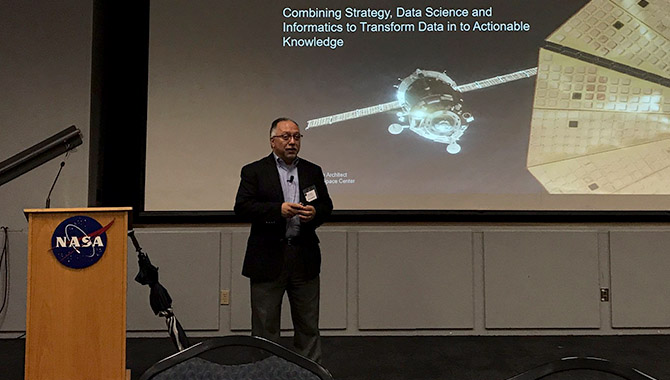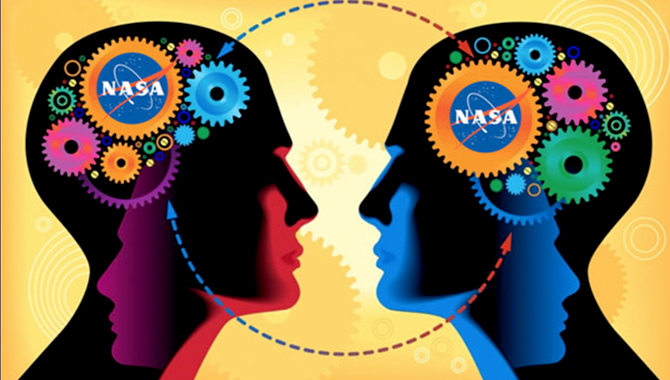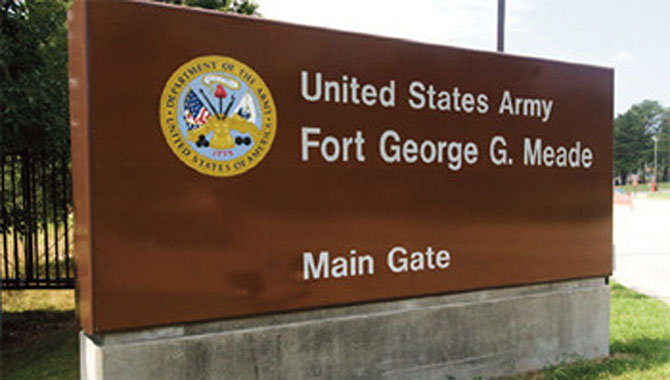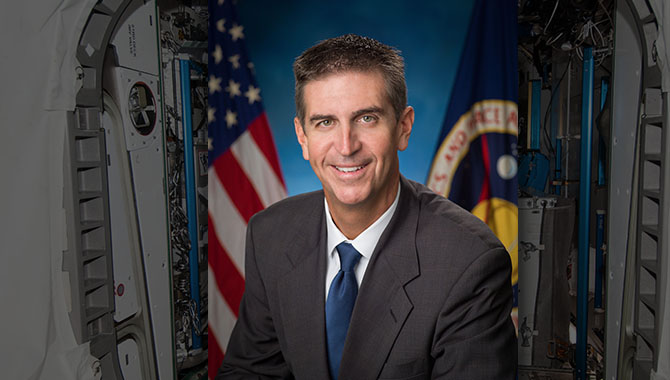
David Meza presents at JSC Data Science Day 2.0 in April 2017.
NASA’s Chief Knowledge Architect uses interactive graph visualization to help turn “know-what” into “know-how” and transmit knowledge to the next generation.
Graph model of lessons learned database.Photo Credit: NASA
NASA began collecting data in the late 1950s and has hundreds of millions of documents, reports, lessons learned and scientific research findings stored in a nationwide Lessons Learned database that expands daily. NASA Chief Knowledge Architect David Meza says the biggest challenge is accessing the information due to silos between groups, departments, programs and products. Breaking down those silos can be achieved through graph databases, says Meza, who works diligently to transform data into actionable knowledge.
Meza, a recognized data sciences expert who is pursuing a doctorate in curriculum and instruction, shared the process, approach and benefits of transforming data into knowledge during a presentation at GraphConnect San Francisco in October 2016. A recent Neo4j Blog post summarizes Meza’s presentation.
He also recently presented a case study to members of APQC’s 2016-2017 KM Advanced Working Group, focusing on how NASA’s Johnson Space Center is using advanced techniques to expand its search and data analysis capabilities. Meza’s presentation, “NASA Johnson Space Center: Combining Strategy, Data Science, and Informatics to Transform Data Into Actionable Knowledge,” is part of the “High-value Content” collection available to registered members through the APQC website.
In addition to speaking at conferences and workshops, Meza is often featured in newspaper and magazine articles on the topic of knowledge management. Recently published articles include:
Big Data: Why NASA Can Now Visualize Its Lessons Learned (Forbes)
NASA Chief Knowledge Architect David Meza on Implementing Knowledge Management (Concord Project Technologies’ Velocity Magazine)
Meza is actively involved in NASA’s Knowledge Community and collaborates with colleagues across the agency to promote a culture of knowledge sharing. He recently coordinated Johnson Space Center Data Science Day 2.0, an event designed to share knowledge and provide training on how data analysis and visualization are used in our everyday lives.
Connect with David Meza on Twitter and LinkedIn.









